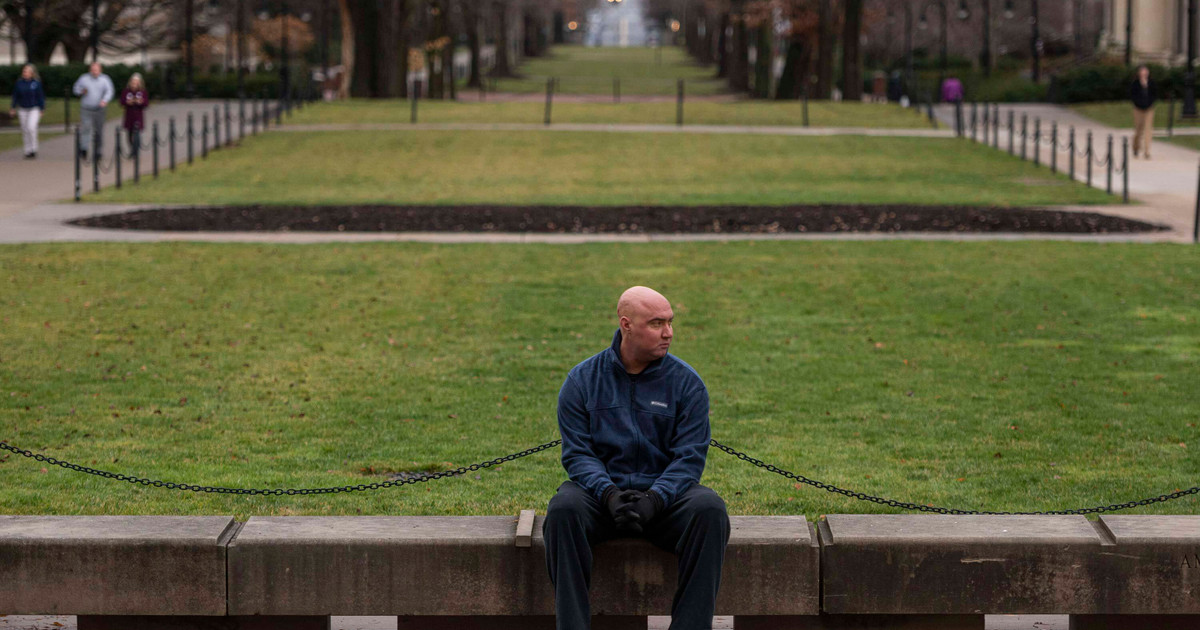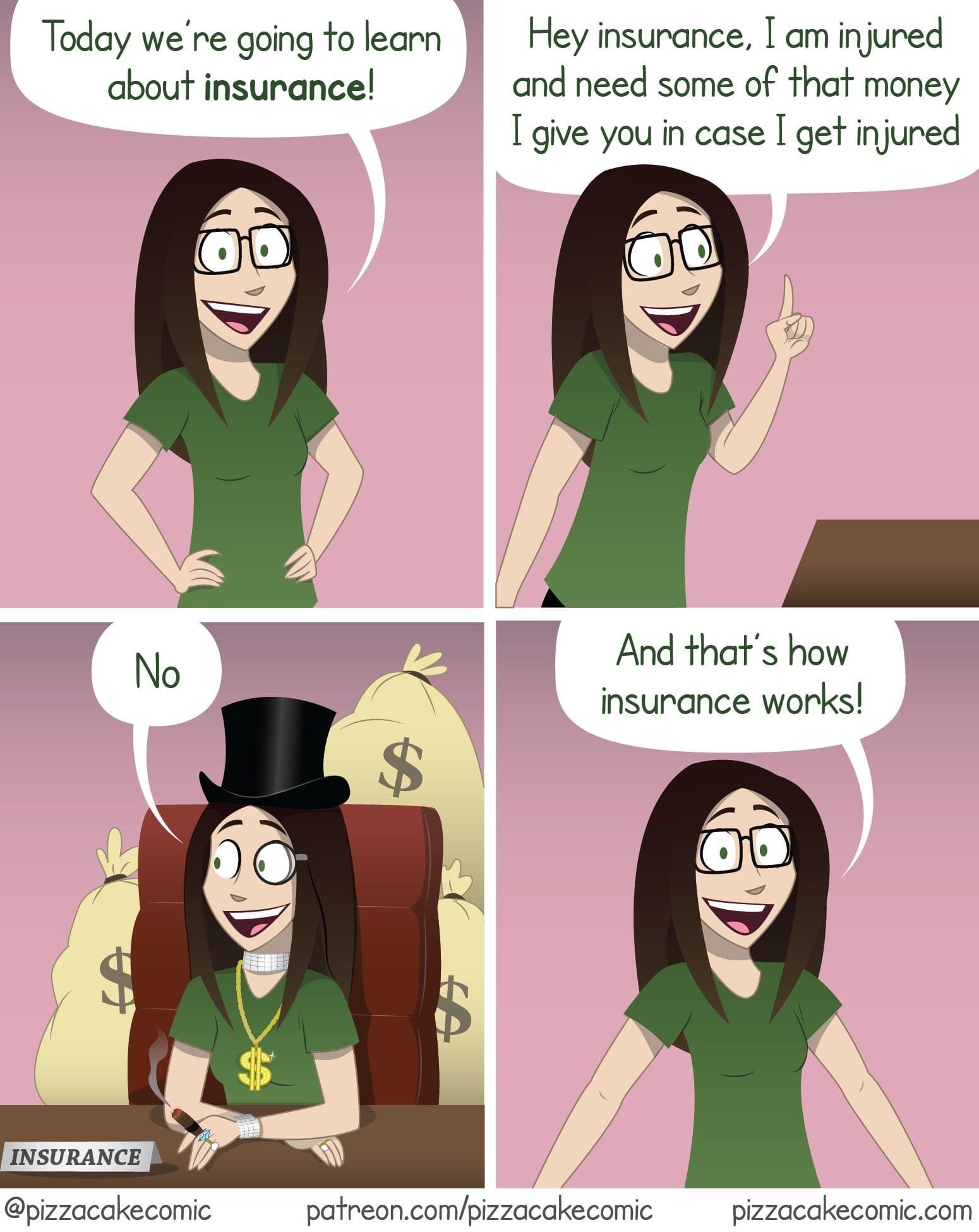
UnitedHealthcare tried to deny coverage to a chronically ill patient. He fought back, exposing the insurer’s inner workings.
After a college student finally found a treatment that worked, the insurance giant decided it wouldn’t pay for the costly drugs. His fight to get coverage exposed the insurer’s hidden procedures for rejecting claims.
Article is too long to really fully cover in this first post, but I do think it's worth reading. These insurance folks are snakes.
In May 2021, a nurse at UnitedHealthcare called a colleague to share some welcome news about a problem the two had been grappling with for weeks.
United provided the health insurance plan for students at Penn State University. It was a large and potentially lucrative account: lots of young, healthy students paying premiums in, not too many huge medical reimbursements going out.
But one student was costing United a lot of money. Christopher McNaughton suffered from a crippling case of ulcerative colitis — an ailment that caused him to develop severe arthritis, debilitating diarrhea, numbing fatigue and life-threatening blood clots. His medical bills were running nearly $2 million a year.
On the 2021 phone call, which was recorded by the company, nurse Victoria Kavanaugh told her colleague that a doctor contracted by United to review the case had concluded that McNaughton's treatment was "not medically necessary." Her colleague, Dave Opperman, reacted to the news with a long laugh.
"I knew that was coming," said Opperman, who heads up a United subsidiary that brokered the health insurance contract between United and Penn State. "I did too," Kavanaugh replied.
Opperman then complained about McNaughton's mother, whom he referred to as "this woman," for "screaming and yelling" and "throwing tantrums" during calls with United.
The pair agreed that any appeal of the United doctor's denial of the treatment would be a waste of the family's time and money.
"We're still gonna say no," Opperman said.
More than 200 million Americans are covered by private health insurance. But data from state and federal regulators shows that insurers reject about 1 in 7 claims for treatment. Many people, faced with fighting insurance companies, simply give up: One study found that Americans file formal appeals on only 0.1% of claims denied by insurers under the Affordable Care Act.
Insurers have wide discretion in crafting what is covered by their policies, beyond some basic services mandated by federal and state law. They often deny claims for services that they deem not "medically necessary."
When United refused to pay for McNaughton's treatment for that reason, his family did something unusual. They fought back with a lawsuit, which uncovered a trove of materials, including internal emails and tape-recorded exchanges among company employees. Those records offer an extraordinary behind-the-scenes look at how one of America's leading health care insurers relentlessly fought to reduce spending on care, even as its profits rose to record levels.
As United reviewed McNaughton's treatment, he and his family were often in the dark about what was happening or their rights. Meanwhile, United employees misrepresented critical findings and ignored warnings from doctors about the risks of altering McNaughton's drug plan.
At one point, court records show, United inaccurately reported to Penn State and the family that McNaughton's doctor had agreed to lower the doses of his medication. Another time, a doctor paid by United concluded that denying payments for McNaughton's treatment could put his health at risk, but the company buried his report and did not consider its findings. The insurer did, however, consider a report submitted by a company doctor who rubber-stamped the recommendation of a United nurse to reject paying for the treatment.
But the records reviewed by ProPublica show that United had another, equally urgent goal in dealing with McNaughton. In emails, officials calculated what McNaughton was costing them to keep his crippling disease at bay and how much they would save if they forced him to undergo a cheaper treatment that had already failed him. As the family pressed the company to back down, first through Penn State and then through a lawsuit, the United officials handling the case bristled.
"This is just unbelievable," Kavanaugh said of McNaughton's family in one call to discuss his case. "They're just really pushing the envelope, and I'm surprised, like I don't even know what to say."
Mornings were the hardest. McNaughton often spent several hours in the bathroom at the start of the day. To prepare for his meeting with Loftus, he set his alarm for 3:30 a.m. so he could be ready for the 7:30 a.m. appointment. Even with that preparation, he had to stop twice to use a bathroom on the five-minute walk from the hotel to the clinic. When they met, Loftus looked at McNaughton and told him that he appeared incapacitated. It was, he told the student, as if McNaughton were chained to the bathroom, with no outside life. He had not been able to return to school and spent most days indoors, managing his symptoms as best he could.
McNaughton had tried a number of medications by this point, none of which worked. This pattern would repeat itself during the first couple of years that Loftus treated him.
The unusual high-dose combination of two biologic drugs produced a remarkable change in McNaughton. He no longer had blood in his stool, and his trips to the bathroom were cut from 20 times a day to three or four. He was able to eat different foods and put on weight. He had more energy. He tapered off prednisone.
"If you told me in 2015 that I would be living like this, I would have asked where do I sign up," McNaughton said of the change he experienced with the new drug regimen.
In January 2021, McNaughton received a new explanation of benefits for the prior months. All of the claims for his care, beginning in September, were no longer "pending." They were stamped "DENIED." The total outstanding bill for his treatment was $807,086.
When McNaughton's mother reached a United customer service representative the next day to ask why bills that had been paid in the summer were being denied for the fall, the representative told her the account was being reviewed because of "a high dollar amount on the claims," according to a recording of the call.
With United refusing to pay, the family was terrified of being stuck with medical bills that would bankrupt them and deprive McNaughton of treatment that they considered miraculous.
They turned to Penn State for help. Light and McNaughton's father, David, hoped their position as faculty members would make the school more willing to intervene on their behalf.
Kavanaugh, who was assigned to a special investigations unit at United, let her feelings about the matter be known in a recorded telephone call with a representative of MRIoA.
"This school apparently is a big client of ours," she said. She then shared her opinion of McNaughton's treatment. "Really this is a case of a kid who's getting a drug way too much, like too much of a dose," Kavanaugh said. She said it was "insane that they would even think that this is reasonable" and "to be honest with you, they're awfully pushy considering that we are paying through the end of this school year."
When Kavanaugh called Loftus' office to set up a conversation with Pabby, she explained it was an urgent matter and had been requested by McNaughton. "You know I've just gotten to know Christopher," she explained, although she had never spoken with him. "We're trying to advocate and help and get this peer-to-peer set up."
McNaughton, meanwhile, had no idea at the time that a United doctor had decided his treatment was unnecessary and that the insurer was trying to set up a phone call with his physician.
"When we got the denial and they lied about what Dr. Loftus said, it just hit me that none of this matters," McNaughton said. "They will just say or do anything to get rid of me. It delegitimized the entire review process. When I got that denial, I was crushed."
Cates said that he does about a hundred reviews a week. He said that in his reviews he typically checks to see if any medications are prescribed in accordance with the insurer's guidelines, and if not, he denies it. United's policies, he said, prevented him from considering that McNaughton had failed other treatments or that Loftus was a leading expert in his field.
"You are giving zero weight to the treating doctor's opinion on the necessity of the treatment regimen?" a lawyer asked Cates in his deposition. He responded, "Yeah."
United, in correspondence with McNaughton, noted that its review of his care was "not a treatment decision. Treatment decisions are made between you and your physician." But by threatening not to pay for his medications, or only to pay for a different regimen, McNaughton said, United was in fact attempting to dictate his treatment. From his perspective, the insurer was playing doctor, making decisions without ever examining him or even speaking to him.
The idea of changing his treatment or stopping it altogether caused constant worry for McNaughton, exacerbating his colitis and triggering physical symptoms, according to his doctors. Those included a large ulcer on his leg and welts under his skin on his thighs and shin that made his leg muscles stiff and painful to the point where he couldn't bend his leg or walk properly. There were daily migraines and severe stomach pain. "I was consumed with this situation," McNaughton said. "My path was unconventional, but I was proud of myself for fighting back and finishing school and getting my life back on track. I thought they were singling me out. My biggest fear was going back to the hell."
The McNaughtons were well aware of the financial situation at United. They looked at publicly available financial results and annual reports. Last year, United reported a profit of $20.1 billion on revenues of $324.2 billion.
When discussing the case with Penn State, Light said, she told university administrators that United could pay for a year of her son's treatment using just minutes' worth of profit.
McNaughton's fight to maintain his treatment regimen has come at a cost of time, debilitating stress and depression. "My biggest fear is realizing I might have to do this every year of my life," he said.
McNaughton said one motivation for his lawsuit was to expose how insurers like United make decisions about what care they will pay for and what they will not. The case remains pending, a court docket shows.
He has been accepted to Penn State's law school. He hopes to become a health care lawyer working for patients who find themselves in situations similar to his.
He plans to reenroll in the United health care plan when he starts school next fall.



